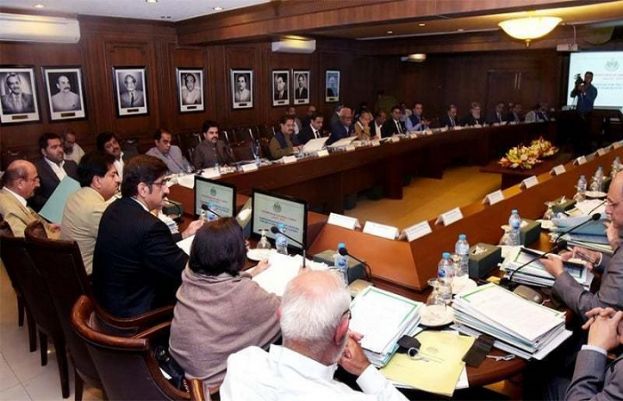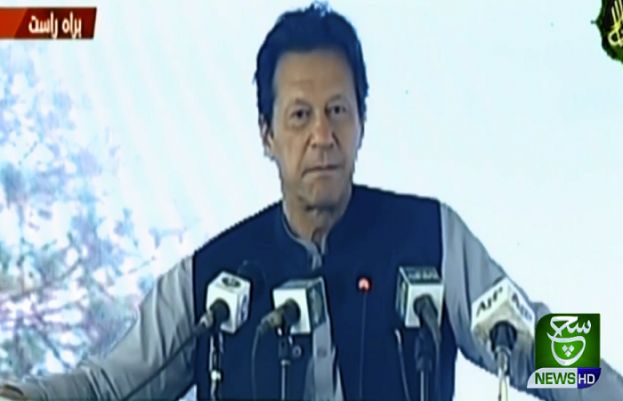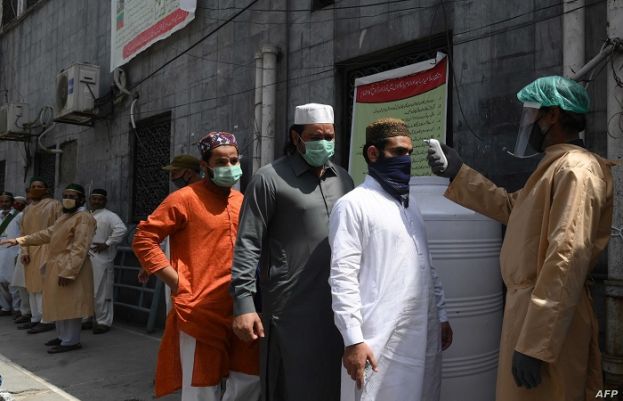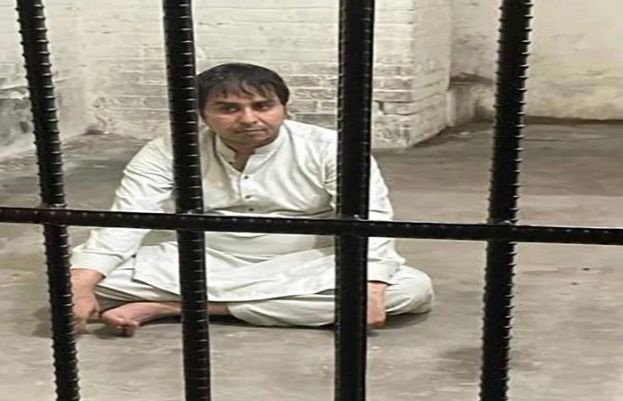The Sindh cabinet in its around five-hour-long sitting on Tuesday approved the Water Act, devolution of the Sindh Building Control Authority (SBCA) to divisional level, ratified Pak Army requirement in support of civil administration, upgraded posts of town officers from BS-11 to BS-16 and approved Rs1 million compensation to the heirs of the government employees who had died of Covid-19.
The cabinet meeting was held under the chairmanship of Chief Minister Syed Murad Ali Shah here at CM House. The meeting was attended by provincial ministers, advisers, Chief Secretary Mumtaz Shah and other secretaries.
The local government department presented the Sindh Water Act to establish the Sindh Water Resource Commission to be headed by the chief minister while the chief secretary would be its vice chairman. Other members would include ministers for finance, irrigation, environment, public health engineering, agriculture, industries, LG, forest, health; planning and development secretary and water experts.
The powers and duties of the commission include water conservation, redistribution and augmentation of water resources in the province.
It would be authorised to allocate water resources for domestic, agricultural, ecological, industrial or other purposes. It will also be its duty to maintain, improve and develop wildlife and fisheries in bodies of water from which water is drawn or is discharged.
The Sindh Water Services Regulatory Authority (SWSRA) will also be created with the powers to ensure that the duties and functions of water service providers are discharged properly.
The SWSRA would have the powers to approve, determine or revise tariffs for water and sewerage service providers. The government may appoint a company, a local government or a statutory authority to be the water service provider or sewerage service provider for any area.
The meeting was told that the SBCA was a self-financing and resource-generating authority as it received fees against approval of building plans, grant of completion certificates, issuance of licences to professionals and builders and no-objection certificates.
The CM said that the SBCA had heavy workload and it was proposed to devolve it to the divisional level.
Under the proposal, the existing SBCA would function as a policy making organisation under its director general.
There would be Regional/Divisional Building Control Authorities such as Regional Building Control Authority (BCA) Karachi, BCA Hyderabad, BCA Mirpurkhas, BCA Shaheed Benazirabad, BCA Sukkur and BCA Larkana.
These authorities would have execution and operational powers.
The cabinet approved the proposed devolution of the SBCA to the regional building control authorities.
The cabinet also approved a request of the LG department to purchase 62 pickups for transportation of street dogs to and from veterinary hospitals.
The dogs would be vaccinated under the rabies control programme and would also be neutered to control their population.
The meeting was told that 184 people were appointed as town officers in 2010 in grade-11. LG Minister Nasir Shah requested the cabinet to upgrade the position from grade-11 to grade-16 and the cabinet approved it.
The agriculture department told the meeting that the federal government had announced a subsidy package for farmers during Kharif 2021 for DAP fertilizer, cotton seed and white fly.
The subsidy on fertilizers (DAP) for rice and cotton had been offered for 70 per cent of the total area under cultivation at a rate of Rs1,500 per acre in which the federal government would pay 75pc share and Sindh government share would be 25pc.
The cabinet approved the subsidy package and constituted a committee to work out a mechanism.
The energy department told the cabinet that M/s Thar Coal Block-I Power Generation Company Limited (TCB-I), a subsidiary of Shanghai Electric, was installing a 1,320 MW power generation facility at Thar Coalfield Block-1.
The cabinet was told that for the development, TCB-1 had acquired 232.32 acres and it required the land to be mortgaged with lenders for which the cabinet was requested to approve a no-objection certificate.
The cabinet approved issuance of the NOC.
In order to appoint suitable rightful heirs of shaheed, deceased and completely disabled police personnel as assistant sub-inspector, the cabinet made an amendment in the Sindh Police Order 2002.
The cabinet also approved amendments in the Sindh Factories Act 2015 and Sindh Shops and Establishment Act 2015 to encourage female labour force participation.
The provincial cabinet approved Rs1m compensation to be paid to the heirs of a deceased government employee, regular and contractual, who died of Covid-19.




